Jenny Graham talks of Iceland's 'addictive' hostility
We talk to around-the-world record holder Jenny Graham about her experience bikepacking Iceland's Fault Line
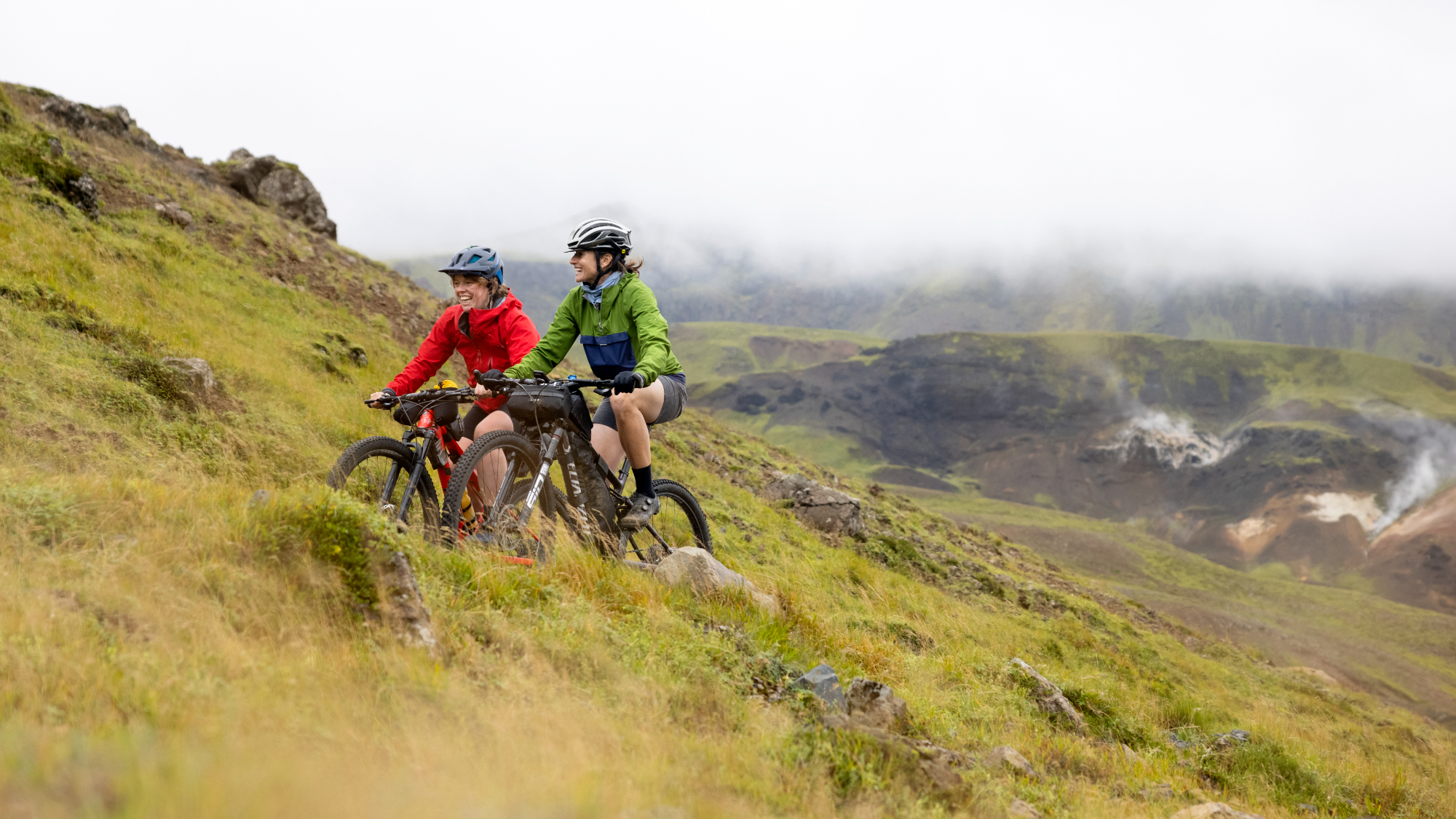
The Rift is the second installment of a three-part video series, in which Jenny Graham teams up with Lael Wilcox to explore Iceland by bike. The GCN+ video series sees them ride and bikepack through the spectacular geographical landscape, overcoming difficult weather conditions and rough terrain.
The Rift - Riding Iceland's Fault Line follows Jenny and Lael as they ride 200km from Thingvellir National Park, through Reykjadalur, and finish at the base of an active volcano. Along the way, they explore the ways in which Iceland has become one of the World’s leading self-sustaining energy producers by harnessing its natural resources.
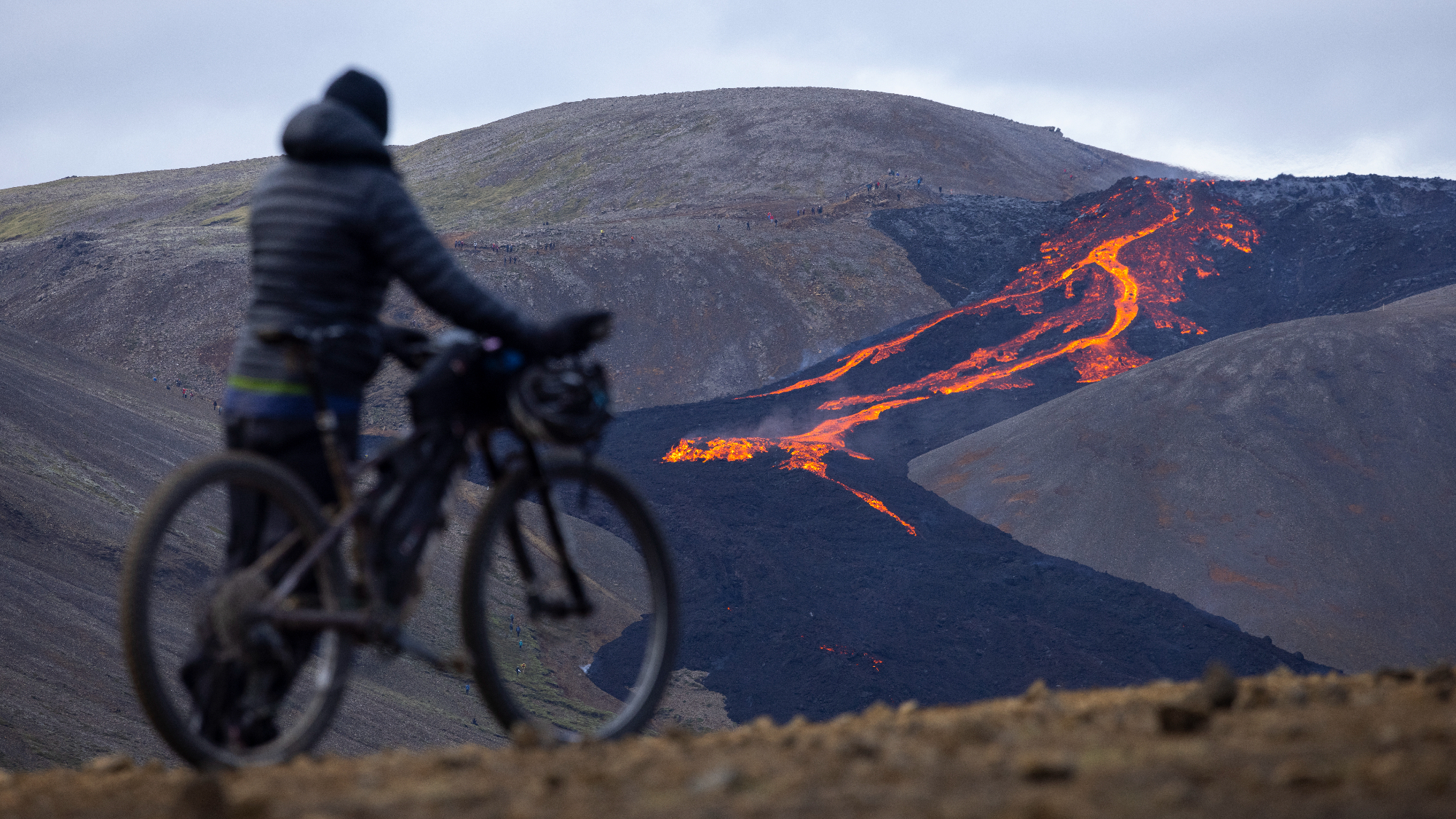
The documentary gives an insight into not just Iceland as a riding location or its geographical drama, but also the people who choose to live in such a dramatic and challenging landscape. This was something that made an impression on Jenny while she was there.
"I think for me, I really wanted to get to grips with this incredible, dynamic landscape. But people are living very successfully in it, and living with it, and harnessing all this energy and celebrating it. And so I was really interested in that, like what was going on with the planet, but also how people managed to function so well with it, and I find that fascinating to know when people have built their lives around these places that clearly take a lot more effort to live in than some of the places in the UK."
While there is a strong environmental message in the film, which sees Jenny and Lael visit multiple renewable energy facilities, there is another theme that features throughout the film: the strength of community amongst Icelandic people. It's clear that this is important to the people of Iceland as, despite the fact that Jenny would be riding through a landscape with virtually nothing apart from a house at the end of a road, there was a real desire to make connections amongst the people living in these remote locations.
So they really dig in and help each other, and the whole country's got a village feel to it.
Jenny Graham
"I mean, we got a bit of a behind the scenes insight into that with using Icebike Adventures and being guided by them and them fixing up what we were doing. And just seeing the way that they could operate and the connections they had. And yes they're a business, but it wasn't business connections. This was like, from one Icelander to another Icelander, you know, it was like that sort of community spirit. There are just over 300,000 people living in Reykjavik, like that's only three times more than the little city I live in in the Highlands of Scotland, and they're in the whole of Reykjavik. And I think, being in a country that size there's so much to deal with, you know, the landscape and life can be tough. So they really dig in and help each other, and the whole country's got a village feel to it."
There are certainly parallels to be made that we can learn from. Iceland is an interesting insight into how communities could potentially live better, especially now that the world has changed so much and forced us to reassess how we interact with each other as a community, and where we consider ourselves within the environment.
"They are a special bunch, they look inwards towards the community before they look to the greater world. So they look at what they've got, they look at what they need, they get that right. And then they think about all the exports and imports and how they're connecting and what tourism they need and stuff, but they get it right for the people who live there first.
"They're so hardy, they're very self-sufficient as a country."
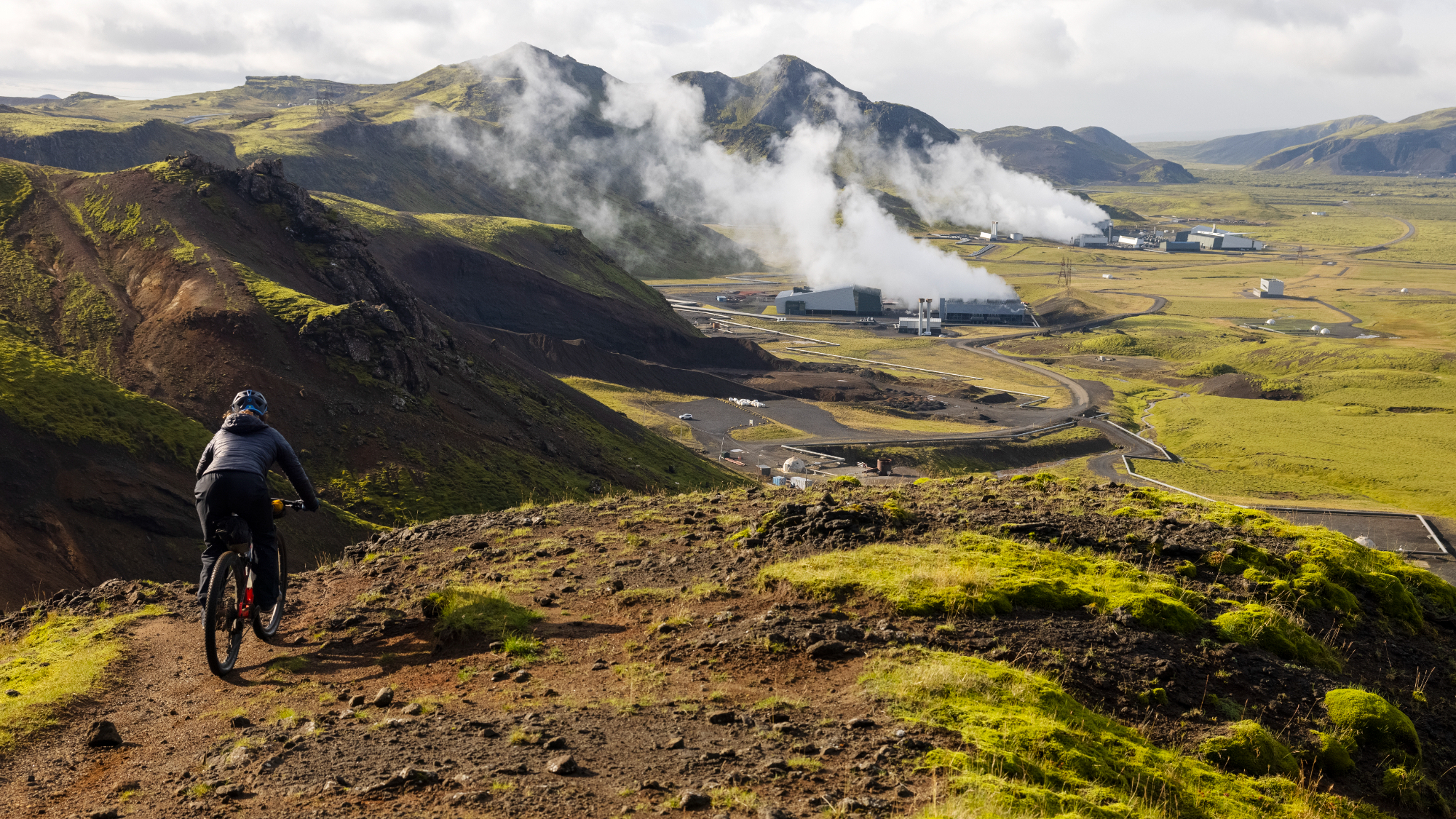
In the first episode of the three-part series, Jenny explores the Westfjords area. The peninsula is one of the most remote parts of Iceland. Dotted with only a few settlements, it's clear that it takes a special type of person to endure such a beautiful, yet hostile location, yet it seems to enthrall those who choose to live there.
"That's it, it was addictive. [The inhabitants of the Westfjords] are addicted to it, and that was incredible. There's only two percent of people living up in the Westfjords, and they were really special, but when I was there I couldn't quite appreciate how isolated they must be in the wintertime. Sometimes I feel isolated in the highlands of Scotland in the wintertime, and these guys are out on these tiny peninsulas. I think it's an addictive place, nothing comes easy there. So, it's a bit like when you're bikepacking, it's the ultimate type-two [fun], although I'm sure there's lots of type-one about living in Iceland, but you have to work for it, and by working for it, you reap the rewards."
This mentality shares a lot of parallels with bikepacking too. Sustainability, self-sufficiency and simplicity are some of the big draws of bikepacking for many people, Jenny included. It's not just self-reliance either; bikepacking has arguably created a far stronger community feel than any other cycling discipline. There is a comradery on the trail, and even at the pointy end of an ultra-endurance race, there are strong bonds between riders who are sharing the experience. The nomadic nature of bikepacking means the social aspect isn't only internally within the bikepacking community, but also outwards as you pass through towns, villages and meet people along the way.
"The people in the Westfjords, they would invite us into their homes and give us their time and share their stories. That's such a privilege, I love that. I love communicating with people and hearing about their lives, and I think when people welcome you in like that, it's the greatest privilege of all, isn't it?"
While the social interactions of a trip are often a lasting memory, the dramatic landscape in which we ride can't be ignored. And it's the environments in which we ride that ultimately shape a trip, especially in such a dynamic landscape like Iceland.
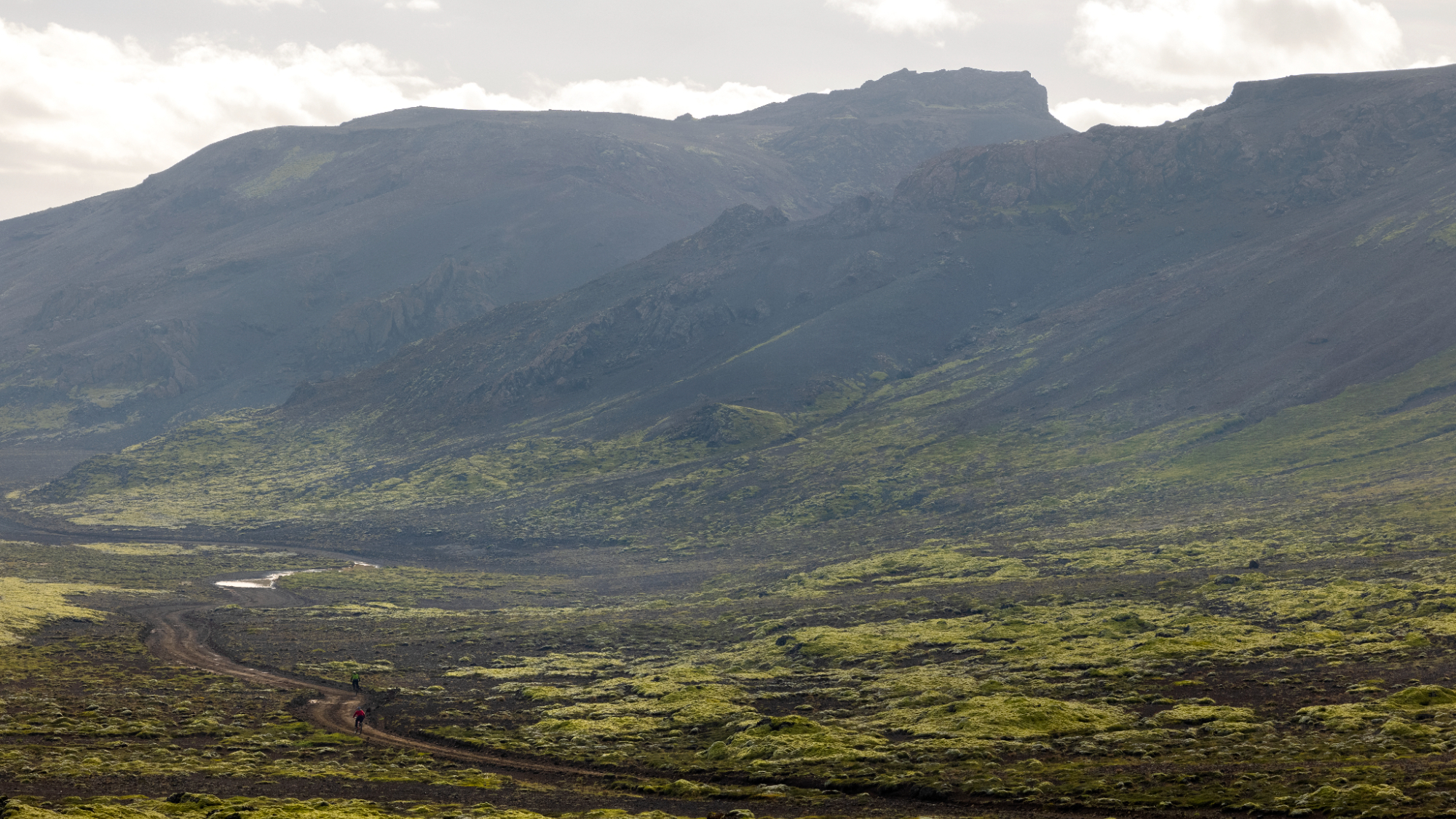
"I'm also a bit of a geek and really love geology, so to be in such a powerful landscape... you know when you're away on your bike, [going] up a mountain or [on] some great adventure, you're seeking out that feeling that you're so small, you're so small on this planet. It's like you're so mindful of how insignificant you are, and how insignificant stuff is, yet it's the only thing that actually matters to you. I think when you're in amongst a landscape that's moving in the way that it does in Iceland, that is just accelerated."
Jenny goes on to say, "It's that commitment, isn't it? I love that. It's a bit like multi-pitch climbing, and when you're halfway up the mountain on a rock face, and you're just like, if I go up or down, either way, there are challenges. You're just committed, there's no easy way out, and I love that. I love there not being an easy way out. I also love easy ways out!"
There's something about giving yourself to it. Giving yourself to the journey, isn't there?
Jenny Graham
Through their successes in ultra-endurance racing, world records and community-based projects, both Jenny and Lael have already played pivotal roles in significantly elevating women's cycling in the endurance and bikepacking realm. Something which has undoubtedly helped encourage more women to get involved in bikepacking.
Cycling, in general, has had a wonderful growth spurt of late, but for new aspiring bikepackers, the commitment needed to do long, overnight riding beyond their comfort zones can be a daunting prospect. Even more so for the increasingly diverse set of riders turning to cycling and bikepacking who previously felt excluded. It can be hard for new riders to relate to the content that they see, but Jenny makes the point that it's all about taking steps within your comfort zone and gradually building up to bigger and better rides. That way new riders can avoid making the biggest bikepacking mistakes that can discourage riders from trying something new.
"If you can, getting out and going somewhere that's really manageable, somewhere not very far from home, somewhere that you know, that maybe you could get a bus or a train from if it all went wrong, and just start with really incremental steps. You don't wake up in the morning and decide to ride around the world the next day, it's all built up. We all build these up by going a little bit further and a little bit further and a little bit further, and I think that's a really important message, because it's easy for novices to look at people who can ride well, and are going out and smashing it, and just assume that they woke up and they could do that, and they haven't suffered, or they don't get a sore ass."
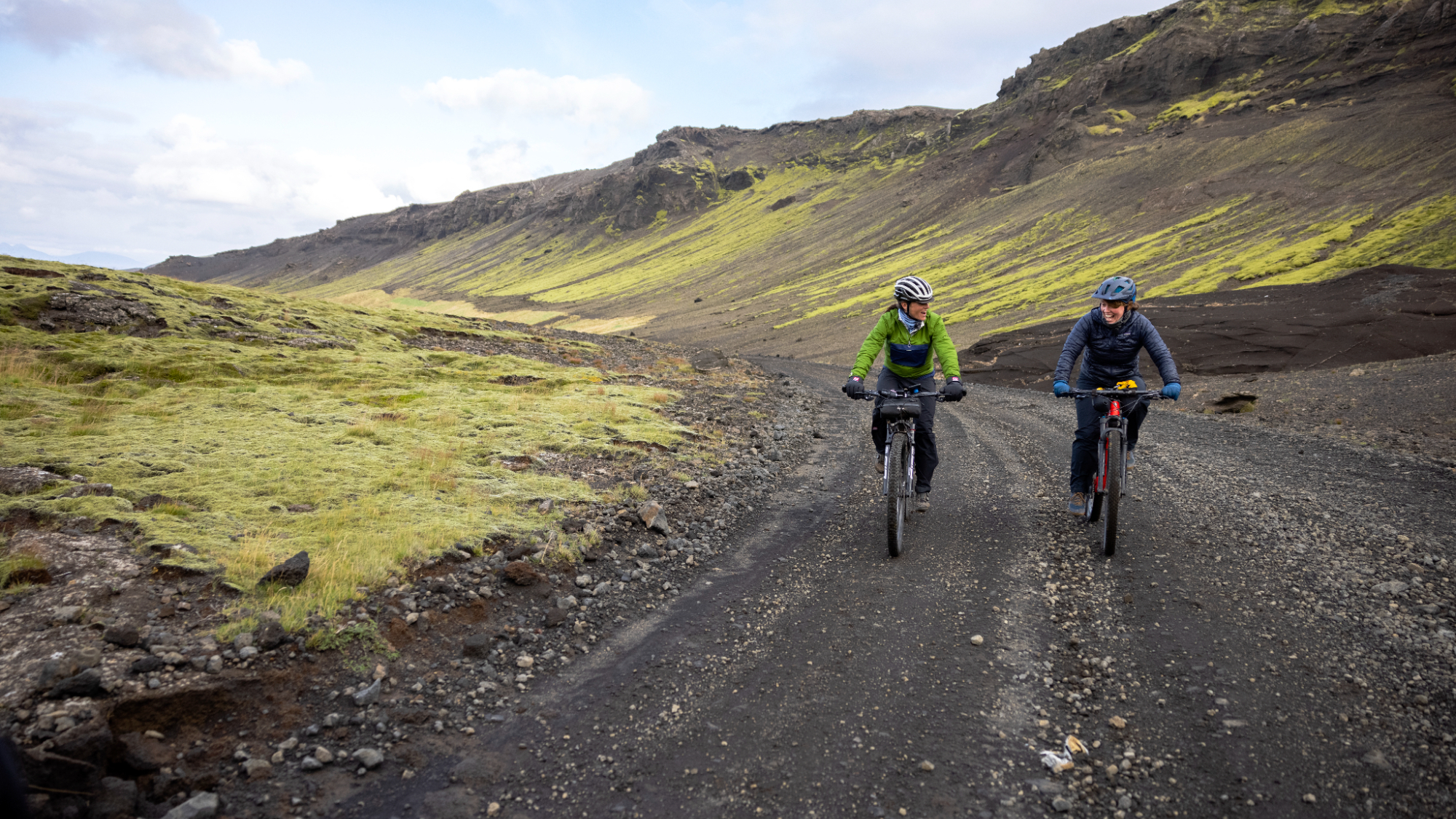
It's of course important to stress that it doesn't need to be these things either, you don't need to suffer to ride a bike. One of the big takeaways from Jenny's videos is how approachable and genuine she comes across, that she rides because it's fun, not because it's about the mileage, the speed or the suffering. A refreshing dynamic that contrasts the 'reward of suffering' approach that is often portrayed in the ultra-endurance world.
"That's a lovely thing to say. I'm so glad that you picked up on that. [...] I don't actually think I'm very good at suffering. I don't enjoy suffering any more than anyone else does. It's just that I don't think I'm suffering. It's the mindset. I get off on riding 12 miles a day and covering a distance. I'm getting high from it. I think it's easy to assume that things are going to be hard and type-two fun, and then you realize this is actually exciting. I am on my bike all day, and climbing hills, and getting a buzz when I get to the top of them and it's raining, but I'm still happy. I've got really good tunes and I'm singing a song, so it's a lot to do with the mindset that you go into it with."
The Rift - Riding Icelands Fault Line, along with Westfjords - Riding Iceland and the soon-to-be-released third installment, From Glacier to Sea, are available to watch through a GCN Plus subscription video service.
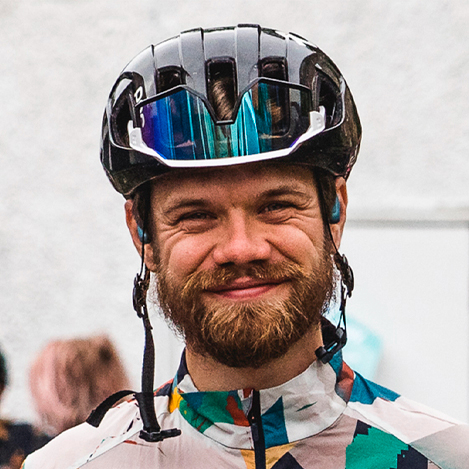
Graham Cottingham joined the BikePerfect team as our senior tech writer in 2020. With over 20 years of riding experience, he has dabbled in downhill, enduro, and gravel racing. Not afraid of a challenge, Graham has embraced bikepacking over the last few years and likes nothing more than strapping some bags to his bike and covering big miles to explore Scotland's wildernesses. When he isn’t shredding the gnar in the Tweed Valley, sleeping in bushes, or tinkering with bikes, he is writing tech reviews for BikePerfect.
Rides: Cotic SolarisMax, Stooge MK4, 24 Bicycles Le Toy 3, Surly Steamroller
Height: 177cm
Weight: 71kg
